Would you like to retire in Portugal but you don’t know which region, city or village to choose?
In this article, I will help you choose the best place for you to live in this amazing country taking into consideration your preferences (climate, city or village, near the beach or in the countryside) and your financial conditions.
Below, you’ll find a review of each region, my suggestions for the places where you can live, the price per square metre (to buy and to rent) of the real estate, the average temperature of each month, the number of sunny days, the pros and cons of each region and, in the end of the article, you’ll find my advice on how to choose the best place for you to retire in Portugal.
Disclosure: This post may contain affiliate links, meaning i get a commission if you decide to make a purchase through my links, at no cost to you. Please read my disclosure for more info.
Here are the 7 best regions to retire in Portugal:
Sommaire
- Here are the 7 best regions to retire in Portugal:
- To retire in Portugal: Porto and Northern Portugal
- To retire in Portugal: Centre of Portugal
- To retire in Portugal: Lisbon and Tagus Valley
- To retire in Portugal: Alentejo
- To retire in Portugal: Algarve
- To retire in Portugal: Madeira Archipelago
- To retire in Portugal: Azores Archipelago
- What will also interest you:
To retire in Portugal: Porto and Northern Portugal
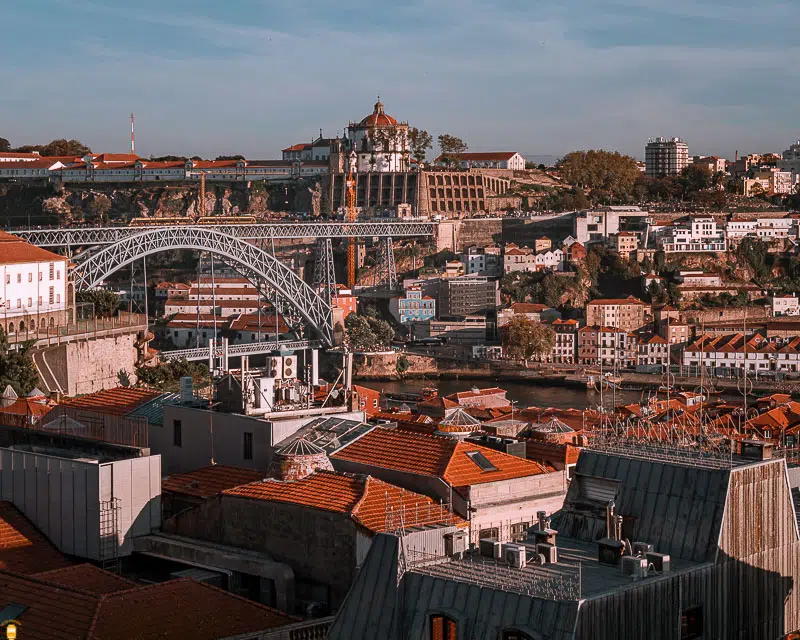
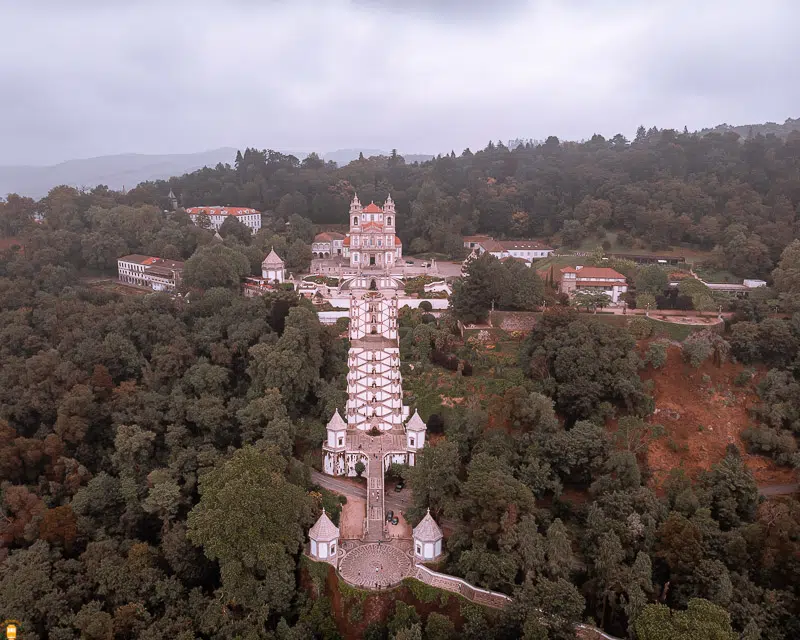
This is the region where this country was born (1139), when D. Afonso Henriques founded the “Kingdom of Portugal”. It is the most populated region in the country (3,7 million people which is 37 % of the Portuguese population) and a great place to retire in Portugal.
Northern Portugal is a mountainous region with several natural parks and even one national park (the only one in the country).
Apart from the countryside, you also have a coastline with more than 100 km of great beaches.
The biggest cities are: Porto (second biggest city in Portugal), Braga, Viana do Castelo, Vila Real and Bragança.
Here is the average price of real estate (to buy and to rent) in these five cities:
Porto: To buy: 1541 € m², To rent: 6.77 € m²/month
Braga: To buy: 943 € m², To rent: 3.79 € m²/month
Viana do Castelo: To buy: 1054 € m², To rent: 3,69 € m²/month
Vila Real: To buy: 974 € m², To rent: 3,35 € m²/month
Bragança: To buy: 791 € m², To rent: 2,66 € m²/month
Important information: the purchase and rent values are the average for each municipality. It can vary a lot depending on the place you chose. This data is useful for comparisons between cities of the same region and of other regions too.
Sources: www.pordata.pt and www.jn.pt
Here is the average temperature in Porto and the number of days without raining:

Source: http://www.accuweather.com/
Pros of this region
- The price of real estate is low
- Several types of landscape separated by few kilometres (mountains, beaches, Douro Valley)
- An authentic region
- Excellent road infrastructures (several highways and national roads well maintained), railway infrastructures (mainly near the coastline, Braga, Guimarães and Douro) and airport infrastructures (airport of Porto)
Cons of this region
- Many foreign and Portuguese tourists (most of the emigrants are from Northern Portugal) “invade” this region, especially in July and August
- Going for a swim in northern beaches is an adventure because the water is too cold
Area where I suggest you should spend your retirement days
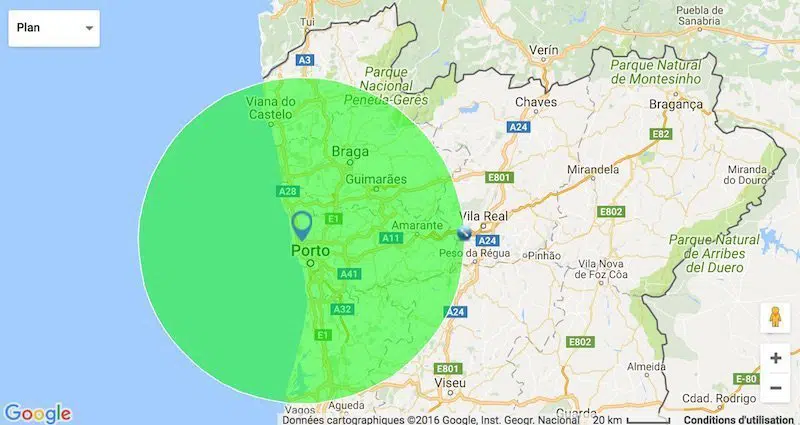
Whether you choose to live by the sea, the mountain or in a city, my advice is that you choose a place close to the airport of Porto (around 100 km/1 hour) – this will allow you to quickly take a plane to visit your family abroad.
If you choose not to live in a city, then you should stay at a place close to one of the biggest cities (Porto, Braga, Viana do Castelo, etc.) so that you have access to all the necessary services of daily life: hospitals, shopping centres, culture, etc.
To retire in Portugal: Centre of Portugal
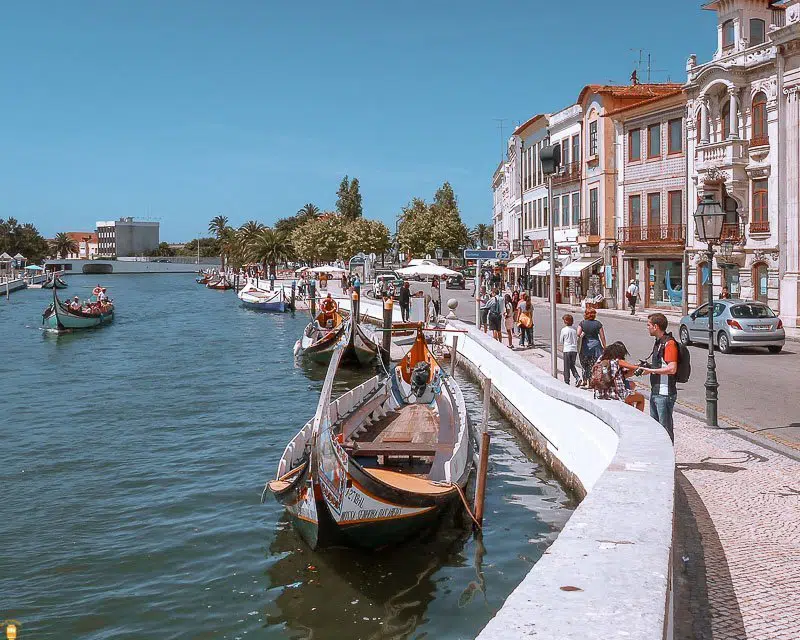
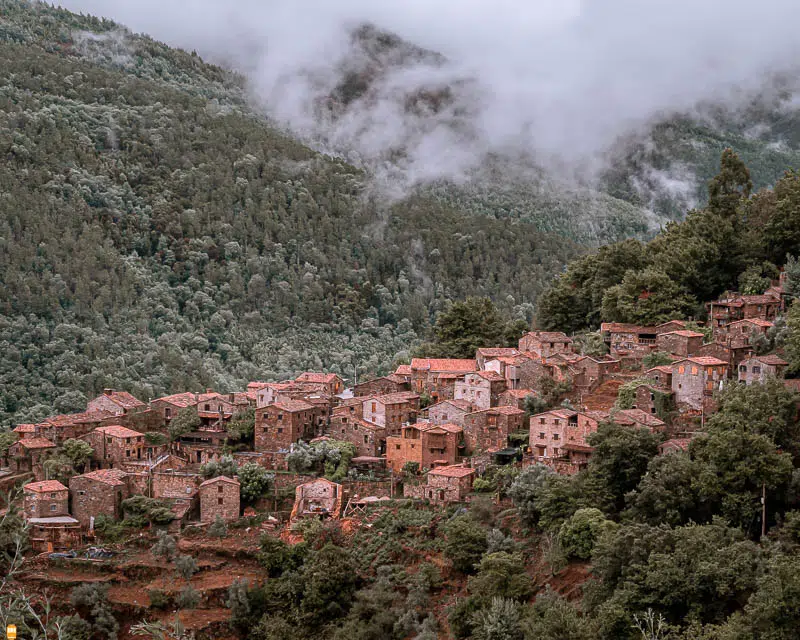
The Centre of Portugal is similar to Northern Portugal: in the coastline you’ll find more than 290 km of beautiful beaches and, in the countryside, some natural parks of which Serra da Estrela is the most important one.
There, you can visit the highest peak of mainland Portugal (1993 m), the only ski track of the country and several scattered villages frozen in time – definitely a great place to retire in Portugal.
The biggest cities are: Aveiro, Viseu, Guarda, Coimbra, Castelo Branco, Leiria and Santarém.
Here is the average price of real estate (to buy and to rent) in these seven cities:
Aveiro: To buy: 1085 € m², To rent: 4.48 € m²/month
Viseu: To buy: 936 € m², To rent: 3.34 € m²/month
Guarda: To buy: 824 € m², To rent: 2.9 € m²/month
Coimbra: To buy: 1259 € m², To rent: 4.95 € m²/month
Castelo Branco: To buy: 816 € m², To rent: 2.94 € m²/month
Leiria: To buy: 952 € m², To rent: 3.82 € m²/month
Santarém: To buy: 899 € m², To rent: 3.33 € m²/month
Important information: the purchase and rent values are the average for each municipality. It can vary a lot depending on the place you chose. This data is useful for comparisons between cities of the same region and of other regions too.
Sources: www.pordata.pt and www.jn.pt
Here is the average temperature in Coimbra and the number of days without raining:

Source: http://www.accuweather.com/
Pros of this region
- Real estate prices are very low (except for Coimbra)
- Several types of landscape separated by few kilometres (mountains, beaches)
- An authentic region
- Excellent road infrastructures (many highways) and railway infrastructures
Cons of this region
- The countryside is somewhat abandoned in some areas
- Going for a swim in this region’s beaches is an adventure because the water is too cold
Area where I suggest you should spend your retirement
If you choose to retire in Portugal, more specifically in the Centre of Portugal, my advice is that you stay in the coastline.
Choose the region close to Aveiro (55 minutes south of the airport of Porto), Coimbra (1h20m south of the airport of Porto) or Leiria (1h20m north of the airport of Lisbon).
If you don’t want to live in the city, choose a place close to a big city, maximum 30 km, (Aveiro, Coimbra, Leiria, etc.), so that you have access to all the necessary services of daily life: hospitals, shopping centres, culture, etc.
To retire in Portugal: Lisbon and Tagus Valley
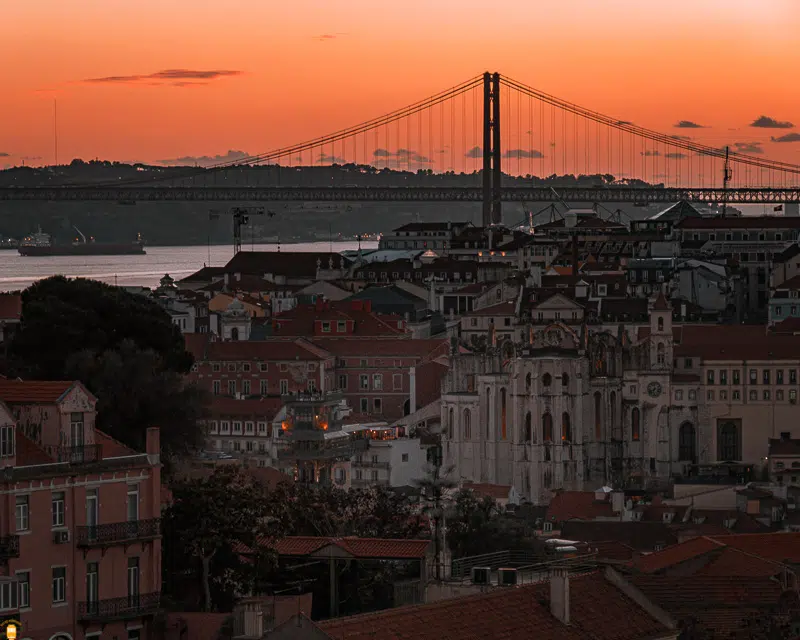
Lisbon region is the second most populated area in Portugal (2,8 million people which is 26,7 % of the Portuguese population), occupying only 3 % of the territory. It is also the richest region in the country.
In this region, you’ll find the beautiful Portuguese capital (Lisbon), more than 150 km of wonderful beaches, some natural parks and places listed by UNESCO as World Heritage.
The biggest cities are: Lisbon and Setúbal
Here is the average price of real estate (to buy and to rent) in these two cities:
Lisbon: To buy: 2108€ m², To rent: 9.62 € m²/month
Setúbal: To buy: 1090 € m², To rent: 4.50 € m²/month
Important information: the purchase and rent values are the average for each municipality. It can vary a lot depending on the place you chose. This data is useful for comparisons between cities of the same region and of other regions too.
Sources: www.pordata.pt and www.jn.pt
Here is the average temperature in Lisbon and the number of days without raining:

Source: http://www.accuweather.com/
Pros of this region
- A truly rich cultural offer
- Several types of landscape separated by few kilometres (natural parks, beaches)
- A dynamic region
- Excellent road infrastructures (several highway and national roads well maintained), railway infrastructures and airport infrastructures (airport of Lisbon)
Cons of this region
- A very touristy region
- Going for a swim in these beaches is an adventure because the water is too cold
- Its cost of life is the highest in Portugal
Area where I suggest you should spend your retirement
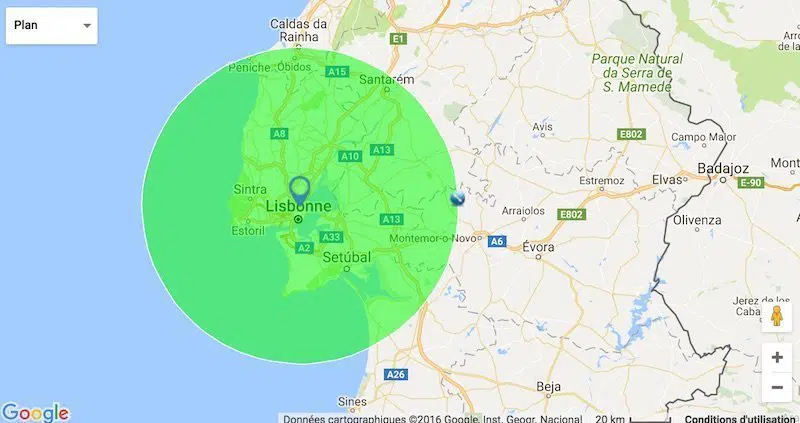
Whether you choose to live by the sea, the mountain or in a city, my advice is that you choose a place close to the airport of Lisbon (around 100 km/1 hour) – this will allow you to quickly take a plane to visit your family abroad.
If you don’t want to live in the city, choose a place close to a big city, maximum 30 km, (Lisbon, Setúbal, etc.), so that you have access to all the necessary services of daily life: hospitals, shopping centres, culture, etc.
To retire in Portugal: Alentejo

Alentejo occupies 33 % of the mainland Portuguese territory which makes it the biggest region in the country. Apart from being a very rural region, Alentejo is also one of the less populated regions in Portugal (7,4 % of the Portuguese population).
This region is perfect for those who search for peacefulness, great spaces and who wish to live in big and luxurious villas.
Even though it is a very rural area, you’ll find some beautiful cities like Évora and Elvas, with their historic centres listed by UNESCO as World Heritage Sites, some natural parks and a coastline with around 140 km of wonderful beaches.
The biggest cities are: Évora, Portalegre and Beja
Here is the average price of real estate (to buy and to rent) in these three cities:
Évora: To buy: 1210€ m², To rent: 4.77 € m²/month
Portalegre: To buy: 872 € m², To rent: 3.10€ m²/month
Beja: To buy: 969 € m², To rent: 3.76 € m²/month
Important information: the purchase and rent values are the average for each municipality. It can vary a lot depending on the place you chose. This data is useful for comparisons between cities of the same region and of other regions too.
Sources: www.pordata.pt and www.jn.pt
Here is the average temperature in Beja and the number of days without raining:

Source: http://www.ipma.pt/
Pros of this region
- The landscape, the beaches and wonderful cities
- An authentic region
- The price of real estate is below national average
- Not a tourist destination like others in Portugal
Cons of this region
- Few road, railway and airport infrastructures (there is no international airport)
- There isn’t much cultural offer
- Going for a swim in Alentejo beaches is an adventure because the water is cold
- It isn’t a dynamic region
- The temperature is really high in the summer (over 35 ºC during daytime)
Area where I suggest you should spend your retirement
If you decide to spend your retirement days in Alentejo, my suggestion is that you choose a place relatively close to the airport of Lisbon (preferably, less than 100 km away), so that you can easily take a plane and visit your family abroad.
If you wish to live by the sea, than you should choose a place between Tróia and Santiago do Cacém. If you prefer the countryside, then choose a place close to Évora (preferably, less than 30 km).
To retire in Portugal: Algarve
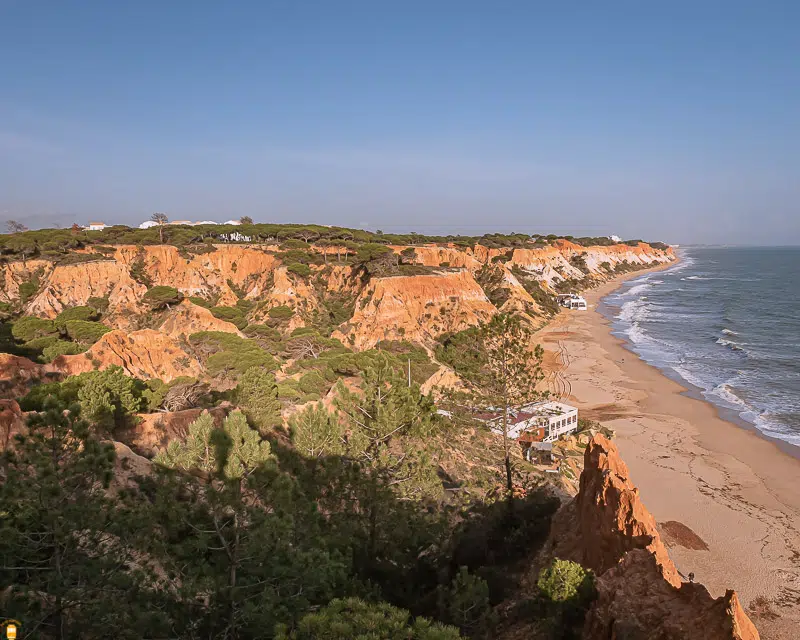
Algarve is possibly the preferred tourist destination in Portugal thanks to its amazing beaches, weather and cultural patrimony. It is one of the smallest regions in the country, but it is one of the three richest along with Lisbon and Madeira, mostly because of tourism.
In Algarve you’ll find a coastline with the most wonderful beaches (possibly some of the most beautiful in Europe) with warm water in comparison to all the other beaches in the country, two natural parks and cities with beautiful historic centres.
The biggest city is: Faro
Here is the average price of real estate (to buy and to rent) in this city:
Faro: To buy: 1400 € m², To rent: 4.96 € m²/month
Important information: the purchase and rent values are the average for each municipality. It can vary a lot depending on the place you chose. This data is useful for comparisons between cities of the same region and of other regions too.
Sources: www.pordata.pt and www.jn.pt
Here is the average temperature in Faro and the number of days without raining:

Source: http://www.ipma.pt/
Pros of this region
- Several types of landscape separated by few kilometres (natural parks, beaches)
- A dynamic region
- Excellent road infrastructures (two highways), railway infrastructures and airport infrastructures (airport of Faro)
- All the necessary services are close
- This is the region with most sunny days in Portugal (336)
- Acceptable temperature in the winter and warm in the summer
Cons of this region
- A very touristy region (especially crowded in July and August)
- Its cost of life is higher than in most Portuguese regions
- Definitely the less authentic region in Portugal
Area where I suggest you should spend your retirement
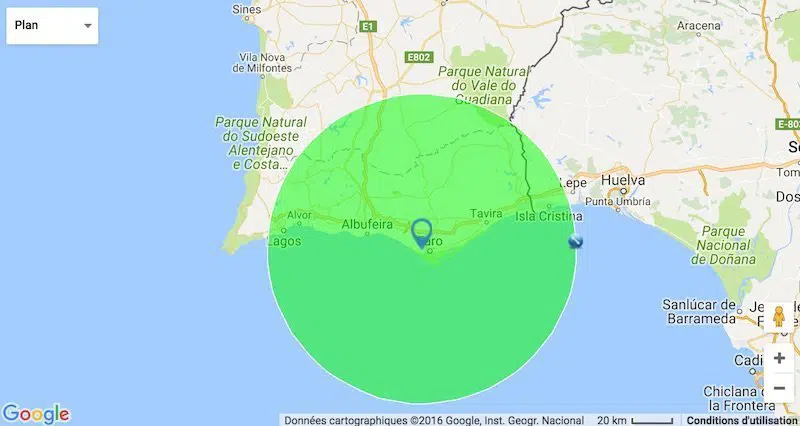
Whether you wish to live by the sea, the countryside or in a city, my suggestion is that you choose a place close to the airport of Faro so that you can easily take a plane and visit your family abroad.
If you don’t want to live in the city, choose a place close to a big city, maximum 30 km, (Faro, Lagos, etc.), so that you have access to all the necessary services of daily life: hospitals, shopping centres, culture, etc.
To retire in Portugal: Madeira Archipelago
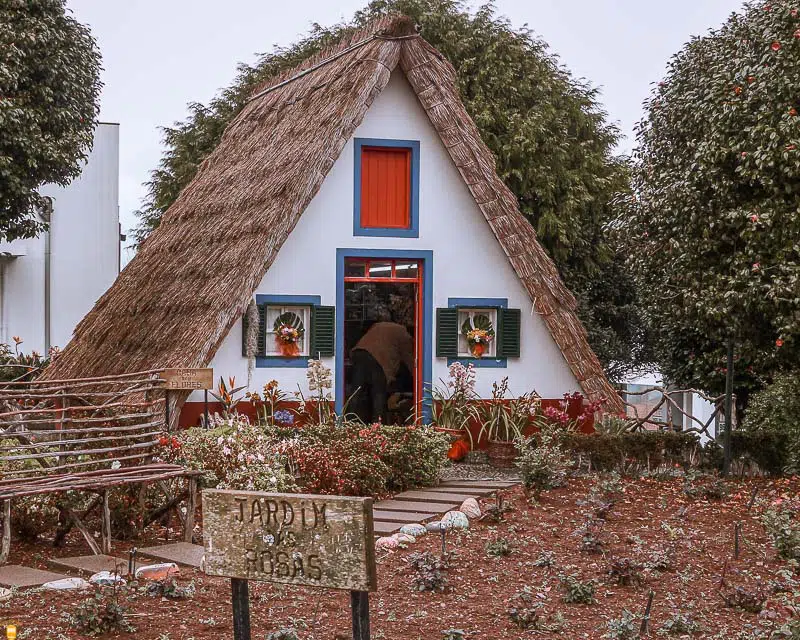
Madeira Archipelago is located in the Atlantic Ocean, 978 km southwest of Lisbon (1h35m by plane), 700 km west of the African coastline and 450 km north of the Canary Islands.
This archipelago is constituted by the Islands of Madeira, Porto Santo and Desertas (Deserted). Of the seven islands and two isles, only two of them are inhabited: Madeira and Porto Santo (267 785 inhabitants).
Madeira is the second richest region in Portugal, especially because of tourism. Here, you’ll find several mountains with viewpoints that offer breathtaking views, great walking routes that will take you almost to the sky and landscapes that you won’t find anywhere else in the world.
The biggest city in Madeira is: Funchal (Madeira Island)
Here is the average price of real estate (to buy and to rent) in this city and island:
Funchal: To buy: 1401 € m², To rent: 5.85 € m²/month
Madeira Archipelago: To buy: 1253 € m², To rent: -€ m²/month
Important information: the purchase and rent values are the average for each municipality. It can vary a lot depending on the place you chose. This data is useful for comparisons between cities of the same region and of other regions too.
Sources: www.pordata.pt and www.jn.pt
Here is the average temperature in Funchal and the number of days without raining:

Source: http://www.accuweather.com/
Pros of this region
- Several and magnificent landscapes close to each other (the sea, the mountains)
- Excellent road infrastructures (especially next to the coastline) and airport infrastructures (airport of Funchal)
- Acceptable temperature in the winter and warm in the summer
- Direct flights between Funchal and some other countries
Cons of this region
- Not many beaches
- All the inconveniences of living on an island
- Long flights to and from other countries (three or more hours)
Area where I suggest you should spend your retirement
If you wish to live in Madeira, my suggestion is that you stay in Funchal or in the surrounding area. All the services you’ll need will be in this city.
To retire in Portugal: Azores Archipelago
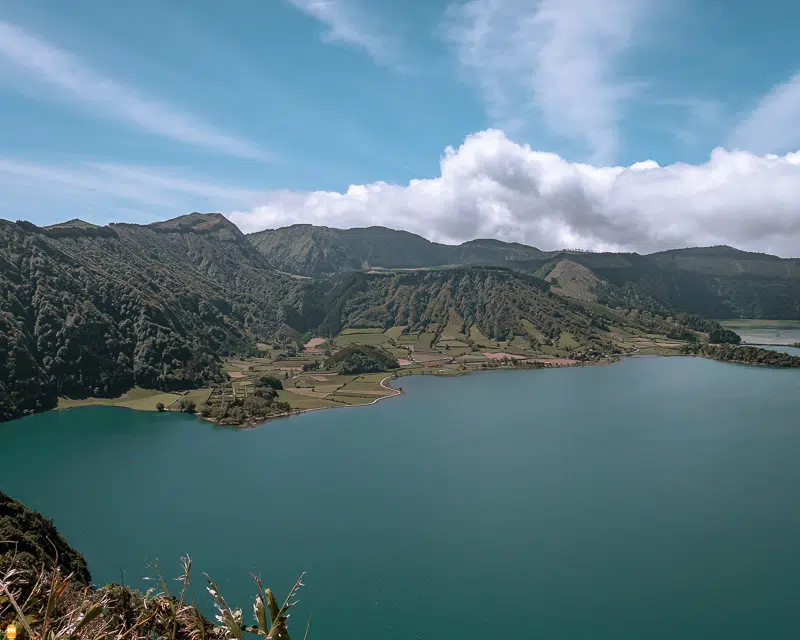
The archipelago of the Azores is a group of nine Portuguese islands (246 746 inhabitants) located on the Atlantic Ocean, 1500 km west of Lisbon (2h05m by plane) and 3900 km east of the United States of America.
The Azores will win you over because of their peacefulness and landscape diversity, from the beautiful plains to the mountains surrounded by fog, without forgetting the numerous cliffs with their viewpoints that offer the most amazing views over the islands and the Atlantic Ocean.
The biggest city in the Azores is: Ponta Delgada (São Miguel Island)
Here is the average price of real estate (to buy and to rent) in this city and island:
Ponta Delgada: To buy: 1060 € m², To rent: 3.94 € m²/month
São Miguel Island: To buy: 1014 € m², To rent: -€ m²/month
Important information: the purchase and rent values are the average for each municipality. It can vary a lot depending on the place you chose. This data is useful for comparisons between cities of the same region and of other regions too.
Sources: www.pordata.pt and www.jn.pt
Here is the average temperature in Ponta Delgada and the number of days without raining:

Source: http://www.ipma.pt/
Pros of this region
- Several and magnificent landscapes close to each other (the sea, the mountains, the lagoons)
- Enjoyable temperature all year round
- An authentic region
- The price of real estate is below national average
Cons of this region
- All the inconveniences of living on an island
- There aren’t many direct flights to other countries
Area where I suggest you should spend your retirement
If you wish to live on an island in the Azores, then my suggestion is that you stay in Ponta Delgada (São Miguel Island) or in the surrounding area. This is the most important city in the archipelago and here you’ll find everything you’ll need to live your daily life.
Summing up
Region where:
There are the most sunny days in the year: Algarve (336)
The temperature is more acceptable in the winter: Archipelago of Madeira (13 °C)
The temperature is hotter in the summer: Alentejo (33 °C)
The price of real estate (to buy) is the lowest: Centre of Portugal (838 € m²)
The cost of life is the highest: Lisbon and Algarve
Now that you have a general idea about all the regions, you just have to choose where to retire in Portugal.
Grab a pen, a piece of paper and write down your priorities:
- Do you want to live by the sea, in a city or in the countryside?
- What temperature do you prefer to have in the summer and in the winter?
- What sort of activities would you like to do? (going to museums, to the cinema, hiking, etc.)
- What is your budget to buy or rent a house? How many square metres should your dream house have?
Once you have realized your priorities, use the information on this article to choose your region. Start by looking for the perfect region taking into account your budget; then the lifestyle you’d like to have: live by the sea, in a city, in the countryside, the activities that you’d like to do and the average temperature all year round.
After having chosen your preferred region, travel to Portugal and visit some cities and towns to verify your choice. Once you have picked the place to live, don’t buy a house or villa straight away.
My suggestion is that you stay/live in your preferred region for two months to verify if you have made the wisest decision.
During these two months, don’t live as a tourist but as you would live if you’d retire in Portugal.
To try out your place of choice, you should first go to Airbnb and rent a house. The prices are more expensive than those of long duration but it is better for you to be completely sure before renting or buying a villa or apartment in that region.
